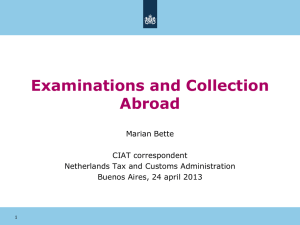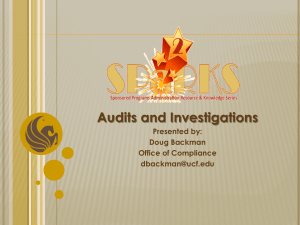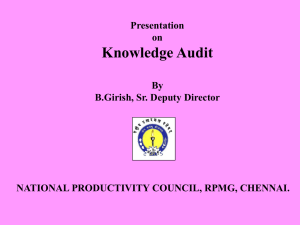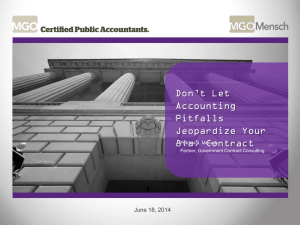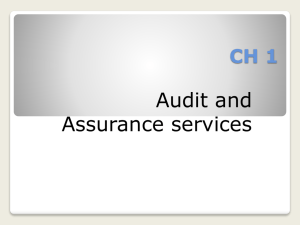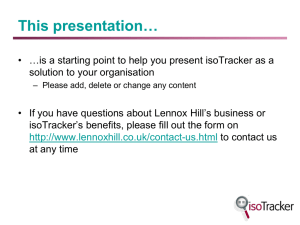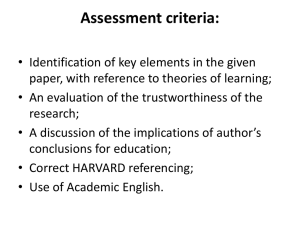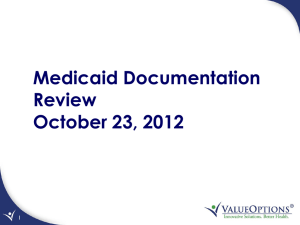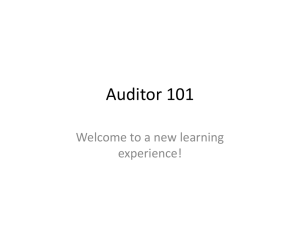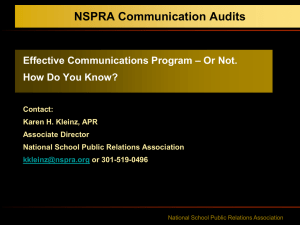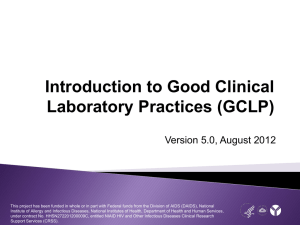Audits - UW-Extension`s Local Government Center
advertisement
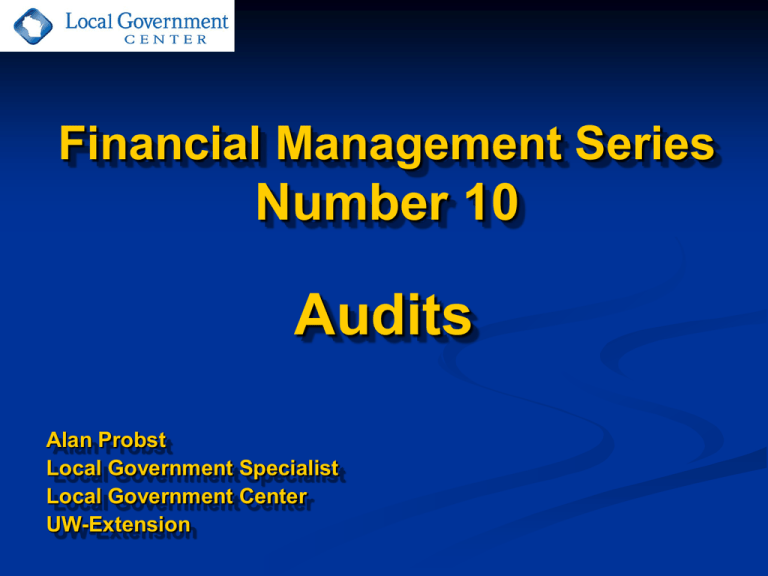
Financial Management Series Number 10 Audits Alan Probst Local Government Specialist Local Government Center UW-Extension Audits Annual audits are required for counties, municipalities, and some towns. An audit is an independent assessment of your government’s external and internal budgetary controls Generally conducted by an independent public accounting firm Audits All audits are conducted under two sets of standards: Generally accepted auditing standards (Auditing Standards Board of the American Institute of Certified Public Accountants) Government Auditing Standards (U.S. General Accounting Office and comptrollergeneral of the United States) Types of Audits Financial Statement Audit is designed to (1) provide assurances that the government’s financial statements are prepared in conformity with GAAP and authoritative financial reporting standards and (2) all material facts are disclosed Types of Audits Compliance Audit is aimed primarily at detecting fraud. Financial records are investigated to certify the legality of expenditures, proper recording of receipts, the correct operation of revenue and expenditure controls, and the accuracy and reliability of financial statements Types of Audits Forensic Audits have legal implications and seek information regarding probable fraud and possible data supporting disputes or litigation Types of Audits Performance Audits determine whether program and budget-unit managers are using resources efficiently and effectively. Detecting fraud is a secondary concern. Performance Audits Management or Operational Audits determines (1) whether a governmental unit is achieving economy and efficiency in its service delivery and (2) whether managerial and administrative practices are the cause of any inefficiencies Performance Audits Program Results Audits determine (1) the extent to which a governmental unit has achieved its program objectives, (2) the effectiveness of the alternatives that were employed, and (3) whether the program has been implemented in compliance with applicable laws and regulations Opinions When an auditor completes an audit and processes all of the findings, an “opinion” will be expressed on the findings and the financial condition of the government just audited. Opinions Generally, there are three types of “opinions” expressed by an auditor: Unqualified Qualified Adverse or Disclaimer Unqualified Audit An “unqualified” audit suggests that the audited government has satisfactorily met all audit requirements, is in general compliance with GAAP, and there or no significant deficiencies in how funds are being managed. It is essentially a “clean bill of health.” This is the most desirable opinion. Qualified Audit A “Qualified” audit suggests there is some deviation from Generally Accepted Accounting Procedures (GAAP) An auditor presenting a “qualified” audit will often use the term “except for” In most cases, a qualified audit means there is some policy or procedure that needs to be changed, updated or corrected but it is not so critical as to place the organization in financial jeopardy. Adverse Audit or Disclaimer An “Adverse” opinion is offered when the auditor concludes the financial statements are to misstated or misleading that they do not fairly present the income, financial position or cash flows of the organization Adverse audits are relatively rare but, when expressed, indicate severe problems with how the organization is accounting for its finances Audits & Borrowing An “unqualified” audit is ideal for borrowing or bond sales A “qualified” audit makes borrowing and bond sales more difficult and may result in higher interest rates being imposed An “adverse” audit can make borrowing or bond sales virtually impossible until the issues cited in the audit are resolved References “Management Policies in Local Government Finance” Fifth Edition, International City/County Managers Association (ICMA), ICMA University ACC 275 – Auditing, Pat Bouker, North Seattle Community College http://lgc.uwex.edu/


